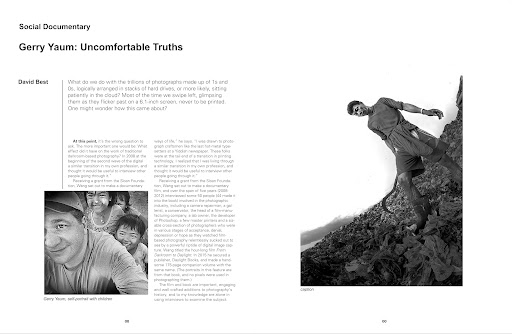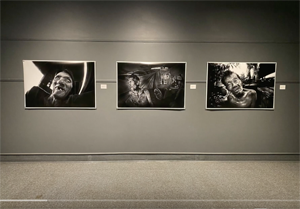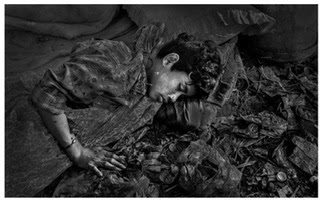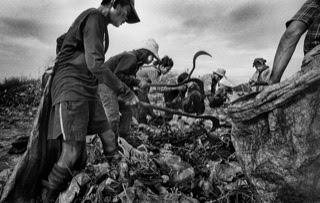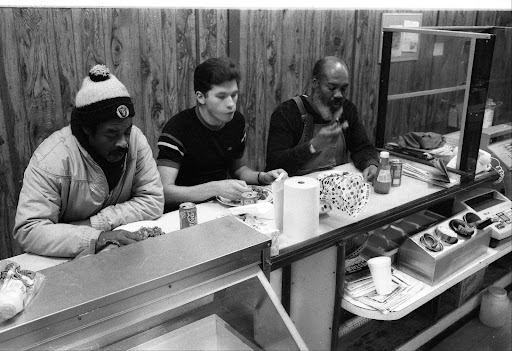I think of ambrotypes as capturing an object or person INSIDE THE GLASS. When you look through the glass to see the image on the other side it is like that object or person is ALIVE inside the glass. It is beyond perfect, beyond beautiful That is why I am working to learn wet plate. That is the goal, to capture things/people/places forever INSIDE THE GLASS.
It reminds of me of the glass paper weight in "1984" that Winston Smith values so much. Here is the excerpted section of that brilliant novel where he finds the paper weight.
-------The tiny interior of the shop was in fact uncomfortably full, but there was almost nothing in it of the slightest value. The floor space was very restricted, because all round the walls were stacked innumerable dusty picture frames. In the window there were trays of nuts and bolts, worn-out chisels, penknives with broken blades, tarnished watches that did not even pretend to be in going order, and other miscellaneous rubbish. Only on a small table in the corner was there a litter of odds and ends—lacquered snuffboxes, agate brooches, and the like—which looked as though they might include something interesting. As Winston wandered toward the table his eye was caught by a round, smooth thing that gleamed softly in the lamplight, and he picked it up.
It was a heavy lump of glass, curved on one side, flat on the other, making almost a hemisphere. There was a peculiar softness, as of rainwater, in both the color and the texture of the glass. At the heart of it, magnified by the curved surface, there was a strange, pink, convoluted object that recalled a rose or a sea anemone.
"What is it?" said Winston, fascinated.
"That's coral, that is," said the old man. "It must have come from the Indian Ocean. They used to kind of embed it in the glass. That wasn't made less than a hundred years ago. More, by the look of it."
"It's a beautiful thing," said Winston.
"It is a beautiful thing," said the other appreciatively. "But there's not many that'd say so nowadays." He coughed. "Now, if it so happened that you wanted to buy it, that'd cost you four dollars. I can remember when a thing like that would have fetched eight pounds, and eight pounds was—well, I can't work it out, but it was a lot of money. But who cares about genuine antiques nowadays—even the few that's left?"
Winston immediately paid over the four dollars and slid the coveted thing into his pocket. What appealed to him about it was not so much its beauty as the air it seemed to possess of belonging to an age quite different from the present one. The soft, rainwatery glass was not like any glass that he had ever seen. The thing was doubly attractive because of its apparent uselessness, though he could guess that it must once have been intended as a paperweight. It was very heavy in his pocket, but fortunately it did not make much of a bulge. It was a queer thing, even a compromising thing, for a Party member to have in his possession. Anything old, and for that matter anything beautiful, was always vaguely suspect. The old man had grown noticeably more cheerful after receiving the four dollars. Winston realized that he would have accepted three or even two.----------
 |
| The paper weight from the 1984 version of the novel |





